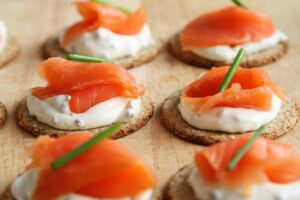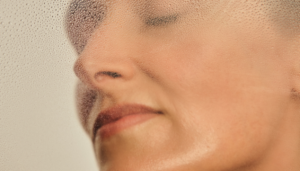The longevity field is booming–conserved pathways that reverse biological ageing have been found across various species, including humans.
Bryan Johnson, founder of Kernel, is spending more money on his body than LeBron James to reverse his biological age to 18. Jeff Bezos, founder of Amazon, is also investing heavily into anti-ageing startups.
At Avea, we are committed to bringing you the latest breakthroughs to enhance your healthy ageing routine. Learn how to naturally reverse your biological age without spending a fortune.
In this article
Why Slow The Signs Of Ageing?
Science and technology allow us to live longer lives. This means more opportunities for individuals, families, and society as a whole. However, the quality of these added years depend mainly on health. Whilst some older people stay active, others experience physical and mental decline due to age-related diseases.
Growing old doesn’t need to be painful. Prioritising health and implementing certain lifestyle modifications, can help reduce biological age and potentially reverse signs of ageing.
Today, we can envision a future where people can live well into their 60s, 80s or even 100s, without the fear of debilitating diseases like diabetes, cancer or dementia.
Ageing As a Disease
Scientists are far from being the first to seek longevity. Philosophers and emperors around the world pursued the fountain of youth as a favourite pastime. But unlike Hippocrates, Emperor Qin Shihuang or Rāmānuja, modern scientists understand few of the biological mechanisms governing ageing.
Ageing is the primary cause for diseases including cardiovascular diseases, cancer, chronic lung diseases, dementia, osteoarthritis and more [1]. It is predominantly caused by random accumulation of cellular and molecular damage, thereby worsening the functioning of regulatory systems such as the central nervous system, the endocrine, and the immune system.
Unlike previously thought, ageing is only partly affected by genetics [2]. Environmental factors, in fact, play a much bigger role in the ageing process.

Over the last 20 years, there have been a number of molecules that have been found to retard the ageing process, at least in animals, and potentially a couple of drugs that are in humans. That made me optimistic that somebody who might make it to 150 has already been born.
Biological vs. Chronological age
Chronological age is the amount of times a person has circled the sun. It provides no actual information about the health of an individual. Scientists have outlined the principal biological hallmarks of ageing, which serves as a basis for biomarkers of biological age.
Biological age is a better predictor of a person’s true physiological state, and when health might deteriorate [3]. Whilst chronological age increases at the same as rate for everyone, biological age does not. Somebody 50 can be 40 biologically, or vice versa.
How To Lower Biological Age
Subjecting the body to hormetic stress can activate protective mechanisms that help combat the negative effects of ageing and extend lifespan. Hormesis stimulates the body’s natural defence mechanisms, such as DNA repair, antioxidant production, and autophagy [4]. In a nutshell, these processes improve overall health and boost longevity.

Hormesis is a state where something challenging, in the right amount or intensity, stimulates and benefits you. This type of stress makes your body stronger, healthier, and better adapted for future challenges. Think of bones becoming stronger and karate practitioners becoming more skilled by constantly challenging their bodies. Another example could be trees. When trees are constantly blown by the wind, the branches grow stronger and become more resistant to damage.
Sweat it out
Exercise isn’t only about getting ripped or shedding extra pounds; it also triggers hormesis and activates longevity genes like the sirtuins, helping to prevent several diseases like cancer, metabolic disorders, and heart and brain problems.
The benefits don’t end there. Research shows that regular exercise can improve your mood, reduce the signs of anxiety, boost energy levels, promote better sleep, and even enhance sex life. Physical activity is a powerful tool for slowing down the ageing process.
Not a fan of the gym or home work out sessions? Go running, swimming, rock climbing, dancing, or simply taking a brisk walk– you name it. The CDC recommends at least 150 minutes of moderate-intensity physical activity per week, but recent studies show that boosting activity higher can further promote longevity [5]. Shake off those sedentary habits and get moving. Your body and mind will thank you later.
Eat and fast the right way
Cells require the right nutrients to function properly and food is thy medicine. As a rule of thumb, try to get most calories from fresh fruits and vegetables, whole grains, legumes, nuts and seeds, and lean proteins. Opt for a plant-based diet more frequently. When going for meat, make sure they are of the highest quality. To balance your blood sugar, try to eat your veggies first, followed by proteins, and lastly carbs [6].
You can also try a type of fasting that works best for you (not recommended to women, especially if pregnant). Intermittent and periodic fasting have been shown to boost longevity genes by inducing hormetic stress. It’s not just what you eat, but also when you eat and how you eat that matter.
Manage stress levels
Chronic stress is detrimental to health. It’s important to learn to healthily cope with stress since mental health affects every aspect of life. Set time aside to unwind and keep your mind healthy. Try meditating, doing yoga or some stretching, enjoying massages, taking hot and cold baths, enjoying some time in nature, or simply listening to your favourite playlist. Relaxing is an important skill to possess.
Find purpose, realise that life is here to be experienced and to be enjoyed. Nothing is really as bad as it seems. One actively needs to fight to be excited about life. Focusing on the positive does not come naturally to most of us.
Cold exposure
Deliberate exposure to cold helps improve athletic performance, prevents muscle atrophy, reduces the risks of obesity, promotes brain cell growth, improves memory and learning, and enhances longevity [7].
Cold showers can also reduce signs of depression and improve sleep quality. It releases norepinephrine into the brain, the neurotransmitter involved in vigilance, focus, attention, and mood. It also helps with pain sensation, metabolism, and our immune system.
Another mechanism involved in cold stress response is the activation of brown adipose tissue (BAT). Unlike white fat, which stores energy and makes up most of our body fat, brown fat mostly burns calories and uses energy. BAT induces thermogenesis (heat production) in the body, in particular, the recruitment of shivering skeletal muscles, thereby improving glucose homeostasis and insulin sensitivity, increasing bone health and reducing cholesterol levels.
Trying longevity supplements
Several molecules have been discovered that mimic effects of exercising or fasting due to their hormetic effects. One such molecule is NMN, and Dr. David Sinclair takes it everyday.
NMN supplementation may increase longevity as it activates our longevity genes— the sirtuins. Human trials also show that NMN supplements
- Improves cognitive function [8]
- Enhances sleep quality [9]
- Reduces the risk of heart disease [10]
- Increases insulin sensitivity and reduces metabolic disorders [11]
- May help reduce body weight and boosts energy [12]
- Improves fitness and muscle endurance [13]
- Improves symptoms of serious disease: Researchers are also exploring the specific benefits of increased NAD levels on high blood pressure, liver health and diabetes [14]
Key Takeaway
Ageing can be reversed. Someone 50 can be 40 biologically, or vice versa. If you’re in your early 50s, do not exercise frequently, consume excessive ultra- processed foods, and have smoked several packs of cigarettes a day for the past 10 years, your biological age will most probably be greater than your chronological age. On the contrary, if you follow a healthy lifestyle, frequently expose yourself to certain types of hormetic stress, ensure your mental health is in check, you could be 40 biologically and far from chronic diseases! Enjoy the process of living whilst you are at it.
Key Signalling Pathways in Ageing
Ageing is a complex and multifactorial process at the cellular and molecular level. Research shows that key signalling pathways, such as the AMPK, mTOR, the sirtuin, and the insulin/IGF-1 pathway, can…
References









